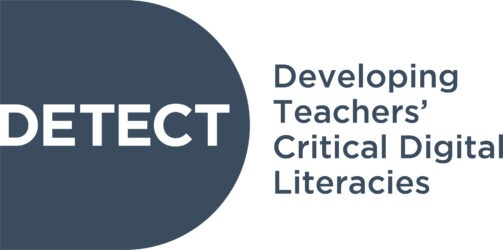This resource is a video lecture where the researchers Liisa Ilomäki and Minna Lakkala from the University of Helsinki The length of the video is 9.27 minutes.
Social media and well-being
The presentation introduces the subject of social media use and well-being. There are questions to be discussed with the students, such as: How do you use social media? Why do you use social media? How often do you comment on posts on social media? What kind of photos or other pictures do you use on social media? The purpose of the presentation is to evoke a student’s thinking about her or his own use of social media
Video explanation Data Literacies dimension
Juliana Raffaghelli from the Unniversitat Oberta de Catalunya explains the Data Literacies dimension from the DETECT project framework.
Critical Digital Literacies Framework
The Critical Digital Literacies framework for educators aims to capture the various dimensions and sub-dimensions of critical digital literacies which are vital for educators and students living, teaching and learning in a digital world.
Read the Framework here.
Exploring Critical Digital Literacy Dimensions: DATA LITERACY
The term “data” is becoming probably a sort of buzzword. What do we
mean with “data”? How do you feel about the word “data”? And why
should we need to be “data literate”?
You might also come across “Big Data”, “Open Data” ,”Data Science”,
Datafication” and “Datafied” as words. And overall, some of this
words have positive connotations and others, very negative
implications for our lives. Clearly, we deal with a problem with many
facets. As educators, we need to explore them to understand which is
the message we want to cater to our students.
Overall, “data” refers to the digital data collected through our
interaction with digital spaces, apps, and smart technologies,
including the Internet of Things. And while this data might be part of
open, public knowledge and could be mined to produce new human
activities, like Artificial Intelligence, there are many connected
problems. Not only the form into which data are collected, without the
consent of the people from which such data are extracted, could be a
concern. Also, the surveillance, the end users’ manipulation through
nudges and recommendations, or the misrepresentation of collectives
are emerging issues connected to all the practices around data. As a
result, there is increasing concern in developing data literacy.
Data Literacy has received great attention over the last few years in
relation to school practices and has been identified as one of the
dimensions of the DETECT Critical Digital LIteracies framework.
Although the issue of Data Protection is usually addressed by relevant
policies at institutional level (mainly in relation to GDPR compliance)
less attention has been paid to raising educators as well as students’
awareness regarding the various aspects and sub-dimensions of data
literacy. Within the DETECT project the aim is to develop educators’
understandings of the multifacet issue of data literacy and also
support them with enhancing their students’ practices in relation to
data protection
This interactive, self-paced learning resource introduces three
perspectives on data literacy:
– Data Protection and Safety
– Open Data to develop critical citizens’ data literacy –
– Data Justice: exploring the dark side of data
The resource can be used either in educators’ workshops or
continuing training. Also it could be a good source of learning for
initial teachers’ education.
Moreover, the teachers could adopt some of the concepts for selfpaced
learning aimed at design lesson plans on data literacy for
secondary school learners.

